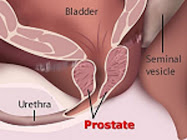LONDON (Reuters) - Chemicals in cannabis have been found to stop prostate cancer cells from growing in the laboratory, suggesting that cannabis-based medicines could one day help fight the disease, scientists said Wednesday.
After working initially with human cancer cell lines, Ines Diaz-Laviada and colleagues from the University of Alcala in Madrid also tested one compound on mice and discovered it produced a significant reduction in tumor growth.
Their research, published in the British Journal of Cancer, underlines the growing interest in the medical use of active chemicals called cannabinoids, which are found in marijuana.
Experts, however, stressed that the research was still exploratory and many more years of testing would be needed to work out how to apply the findings to the treatment of cancer in humans.
"This is interesting research which opens a new avenue to explore potential drug targets but it is at a very early stage," said Lesley Walker, director of cancer information at Cancer Research UK, which owns the journal.
"It absolutely isn't the case that men might be able to fight prostate cancer by smoking cannabis," she added
The cannabinoids tested by the Spanish team are thought to work against prostate cancer because they block a receptor, or molecular doorway, on the surface of tumour cells. This stops them from dividing.
In effect, the cancer cell receptors can recognize and "talk to" chemicals found in cannabis, said Diaz-Laviada.
"These chemicals can stop the division and growth of prostate cancer cells and could become a target for new research into potential drugs to treat prostate cancer," she said.
Her team's work with two cannabinoids -- called methanandamide and JWH-015 -- is the first demonstration that such cannabis chemicals prevent cancer cells from multiplying.
Some drug companies are already exploring the possibilities of cannabinoids in cancer, including British-based cannabis medicine specialist GW Pharmaceuticals.
It is collaborating with Japan's Otsuka on early-stage research into using cannabis extracts to tackle prostate cancer -- the most commonly diagnosed cancer in men -- as well as breast and brain cancer.
GW has already developed an under-the-tongue spray called Sativex for the relief of some of the symptoms of multiple sclerosis, which it plans to market in Europe with Bayer and Almirall.
Other attempts to exploit the cannibinoid system have met with mixed success. Sanofi-Aventis was forced to withdraw its weight-loss drug Acomplia from the market last year because of links to mental disorders.
I'm not suggesting anyone to use marijuana & don't support it in any way. This is just an article I found that relates to prostate cancer. As a matter of fact, I'm against marijuana usage of all types but medical marijuana has been known to help people with certain health conditions. Thanks!






